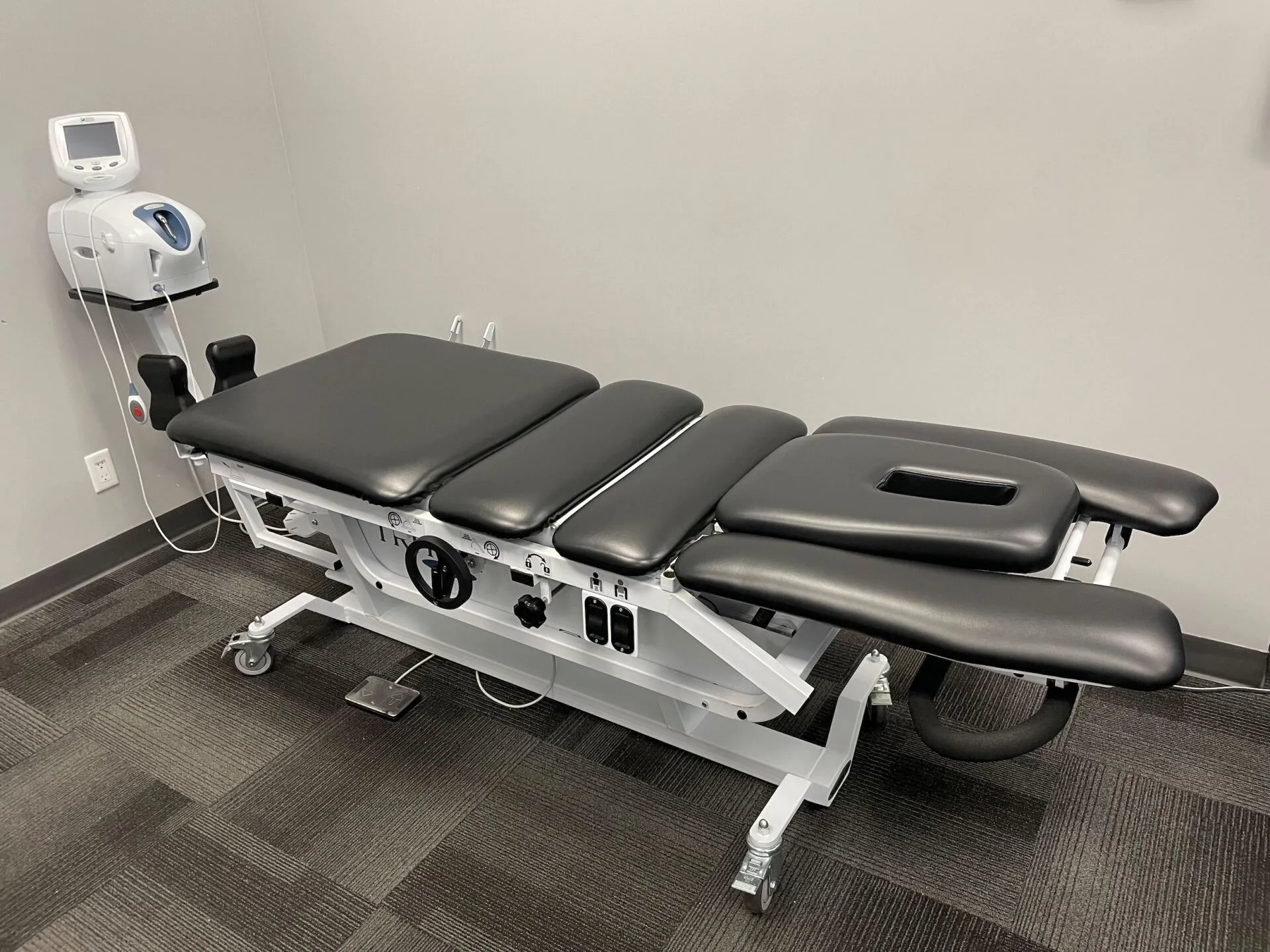In the realm of workplace safety, swift and effective treatment for injuries is paramount. Providing timely care not only aids in the well-being of employees but also enhances productivity. Workplace injury treatment has evolved significantly over time, with historical practices giving way to modern approaches that prioritize quick recovery and minimal downtime. From basic first aid to advanced medical interventions, the focus remains on ensuring a safe and healthy work environment for all. Understanding the evolution of workplace injury treatment can shed light on current best practices and help organizations proactively address potential risks.
Key Takeaways
- Timely treatment of workplace injuries is crucial for a speedy recovery and to prevent complications.
- Report workplace injuries promptly to ensure proper documentation and access to necessary treatment.
- Mental health considerations are vital in the treatment of workplace injuries, as psychological well-being impacts physical recovery.
- Early intervention and personalized return plans can facilitate a smooth transition back to work post-injury.
- Address bullying and harassment claims seriously to create a safe and supportive work environment.
- Choose Beaumaris Health Centre for comprehensive care and support in managing workplace injuries.
Understanding Workplace Injuries

Common Types
Workplace injuries can range from slips, trips, and falls to repetitive strain injuries that develop over time. These injuries can significantly impact employees’ well-being and productivity. It’s crucial to address both physical injuries and mental health disorders resulting from workplace incidents. Recognizing visible and invisible injuries is essential for providing appropriate treatment and support to workers.
Causes and Risk Factors
Environmental factors play a significant role in causing workplace injuries, such as unsafe equipment and poor ergonomics. Human factors like fatigue, lack of training, and inadequate supervision also contribute to the risk of injuries. Moreover, workplace culture and employee behavior can influence the occurrence of accidents, highlighting the importance of promoting a safety-oriented environment.
- Unsafe equipment
- Poor ergonomics
- Fatigue
- Lack of training
- Inadequate supervision
Prevention Strategies
To mitigate workplace injuries, organizations should establish robust safety protocols and conduct regular training sessions to educate employees on hazard identification and prevention measures. Employee involvement in safety committees fosters a culture of safety where individuals actively contribute to maintaining a secure work environment. By conducting risk assessments, employers can proactively identify potential hazards and implement measures to prevent injuries before they occur.
- Implement safety protocols
- Conduct regular training sessions
- Encourage employee participation in safety committees
- Utilize risk assessments
Importance of Timely Treatment
Immediate Steps

Employees should seek medical attention promptly after a workplace injury to prevent complications. Reporting the incident to supervisors and documenting it accurately is crucial for legal and insurance purposes. Following up with healthcare providers ensures proper treatment and recovery.
- Advise immediate medical attention post-injury
- Instruct on reporting incidents accurately
- Emphasize following up with healthcare providers
Long-Term Care
Ongoing medical care and rehabilitation are essential for full recovery post-injury. Mental health support plays a vital role in helping employees cope with the aftermath of workplace injuries. Regular follow-ups with healthcare professionals monitor recovery progress effectively.
- Outline the need for rehabilitation post-injury
- Discuss importance of mental health support
- Encourage regular follow-ups with healthcare professionals
Role of Healthcare Providers
Healthcare providers play a critical role in diagnosing and treating workplace injuries promptly. Effective communication between healthcare providers and employers regarding treatment plans is key to ensuring a smooth recovery process. Educating patients about their rights and available benefits empowers them to make informed decisions about their treatment.
- Clarify responsibilities of healthcare providers
- Highlight importance of communication between providers and employers
- Encourage providers to educate patients about their rights
Reporting Workplace Injuries
Reporting Procedures
Employees should immediately report workplace injuries to their supervisor or HR department. Timely reporting is crucial for compliance with legal requirements and ensures proper documentation for injury assessment. Utilize the Safety Incident Reporting Portal for easy and efficient documentation.
- Steps to report workplace injuries: Notify supervisor, complete incident report, seek medical attention.
- Significance of timely reporting: Ensures accurate documentation, aids in prompt treatment, and supports injury claims.
- Using Safety Incident Reporting Portal: Streamlines the reporting process, maintains a record of incidents, and facilitates communication between employees and management.
Documentation Required
Essential documents for reporting workplace injuries include incident reports, medical records, and any relevant witness statements. Detailed records are vital for supporting compensation claims and providing evidence of the injury’s severity. Employees should retain copies of all correspondence related to their injury for future reference.
- Importance of detailed records: Supports the validity of injury claims, assists in determining liability, and aids in assessing the extent of the injury.
- Keeping copies of correspondence: Ensures easy access to information, helps track the progress of injury claims, and serves as a reference for legal purposes.
Legal Obligations
Employers are obligated under the Workers Compensation Act to maintain a safe work environment and promptly report workplace injuries. Failing to report injuries or incidents promptly can lead to legal consequences, including fines or penalties. Employees have the right to seek compensation for work-related injuries through proper reporting procedures.
- Employer responsibilities: Provide a safe workplace, report injuries promptly, cooperate with investigations.
- Legal implications of delayed reporting: Potential fines or penalties, increased liability for employers, delays in receiving compensation.
- Employee rights: Right to seek compensation for work-related injuries, protection against retaliation for reporting injuries.
Mental Health Considerations

Recognizing Signs
Teach employees about physical and psychological signs of workplace injuries to promote early intervention.
Encourage awareness of changes in behavior or performance indicating underlying issues for prompt action.
- Train employees to identify signs promptly
- Promote open communication for early intervention
Support Systems
Identify available support systems like Employee Assistance Programs (EAPs) within the workplace.
Encourage peer support networks to aid employees in coping with injury aftermath effectively.
- Highlight the role of management in providing support
- Foster a supportive environment for injured workers
Addressing Stigma
Discuss the stigma surrounding mental health issues at work and its impact on reporting.
Encourage open dialogues to normalize mental health discussions, reducing fear and promoting understanding.
- Promote educational initiatives on mental health resources
- Normalize discussions to reduce stigma associated with mental disorders
Early Intervention and Return Plans
Benefits of Early Intervention
Seeking treatment immediately after an injury offers timely advantages for employees. Early intervention enhances recovery outcomes significantly. It can also reduce long-term costs associated with prolonged treatments and absences. Proactive measures play a crucial role in preventing chronic conditions from developing post-injury.
Developing Return Plans
Creating personalized return-to-work plans for injured employees involves a structured process. Gradual reintegration into the workplace is essential to support recovery effectively. Collaboration among employees, healthcare providers, and employers is vital in developing comprehensive and accommodating return plans.
- Bullet list:
- Personalized plans aid in smoother transitions.
- Gradual reintegration supports physical and mental well-being.
- Collaboration ensures all parties are aligned for successful returns.
Monitoring Progress
Tracking recovery progress through established methods is key to adjusting treatment plans effectively. Regular check-ins between employees and supervisors facilitate discussions on recovery milestones. Feedback from healthcare providers plays a significant role in monitoring employee health throughout the recovery process.
- Numbered list:
- Regular progress tracking ensures timely adjustments.
- Check-ins promote open communication and support.
- Healthcare provider feedback guides treatment modifications accurately.
Bullying and Harassment Claims
Identifying Harassment
Workplace harassment involves unwelcome behaviors that create a hostile environment for employees. It can include verbal abuse, intimidation, or discrimination.
Employees should report any instances of bullying or harassment to prevent further escalation and protect their well-being.
Establishing a respectful workplace culture is crucial to fostering a safe and inclusive environment for all employees.
Reporting Mechanisms
Employees have various channels to report incidents of workplace harassment, such as HR departments, supervisors, or anonymous hotlines.
Utilizing anonymous reporting options can provide a sense of security for employees fearing retaliation.
HR plays a pivotal role in addressing and investigating reported incidents, ensuring a swift and fair resolution process.
Support for Victims
Victims of workplace harassment can access resources like counseling services to cope with the emotional impact of the experience.
Providing a safe space for victims to share their experiences promotes healing and recovery from the trauma.
Organizations must establish policies that safeguard victims’ rights and offer support throughout the resolution process.
Why Choose Beaumaris Health Centre

Specialized Services
Beaumaris Health Centre offers specialized services for workplace injury treatment, including occupational therapy. This tailored approach ensures that each injury receives the specific care it needs. Employees benefit from targeted treatments designed to address their unique conditions. Exploring these specialized services can lead to more effective and efficient recovery processes.
- Tailored treatments for each injury
- Targeted care for unique conditions
Experienced Professionals
Consulting experienced professionals at Beaumaris Health Centre is crucial for effective injury treatment and recovery. The center’s multidisciplinary teams provide holistic care, addressing physical, emotional, and mental aspects of injuries. Ongoing education for healthcare providers ensures that they are equipped with the latest knowledge and best practices for optimal patient outcomes.
- Holistic care by multidisciplinary teams
- Ongoing education for updated best practices
Patient Testimonials
Real-life patient testimonials at Beaumaris Health Centre showcase successful workplace injury recoveries. These stories raise awareness about the importance of workplace safety and mental health support. Sharing personal experiences fosters a sense of community support and understanding among individuals facing similar challenges.
- Awareness raised through personal stories
- Community support through shared experiences
Summary
In understanding workplace injuries, timely treatment plays a crucial role. Reporting incidents promptly and considering mental health aspects are equally vital. Early intervention and return plans, along with addressing bullying and harassment claims, are key to a healthy work environment. Choosing Beaumaris Health Centre ensures comprehensive care for your workplace injury needs.
Remember, your well-being is paramount. Take action promptly if you face an injury at work. Prioritize your health and safety to maintain a productive and positive work atmosphere.
Frequently Asked Questions
What are the common types of workplace injuries?
Workplace injuries can vary from minor cuts and bruises to more severe incidents like fractures, sprains, or even repetitive strain injuries due to poor ergonomics.
How important is timely treatment for workplace injuries?
Timely treatment is crucial as it can prevent complications, speed up recovery, and reduce the chances of long-term disability or chronic pain.
Why is reporting workplace injuries essential?
Reporting workplace injuries ensures proper documentation for insurance claims, legal purposes, and helps in identifying trends to prevent future accidents.
What mental health considerations should be taken after a workplace injury?
It’s crucial to address potential mental health impacts such as anxiety, depression, or PTSD that may arise from a workplace injury to ensure holistic recovery.
How does early intervention and return plans benefit injured employees?
Early intervention and customized return plans not only expedite recovery but also promote employee morale, productivity, and reduce absenteeism.
Not what you were looking for? Beaumaris Health Centre also offers:
Chiropractic
Physiotherapy
Car Accident Treatment
Beaumaris Health Centre’s Top Resources Regarding Workplace Injury Treatment:
Work Accident Wiki
Workers’ Compensation Board – Alberta (WCB Alberta)







